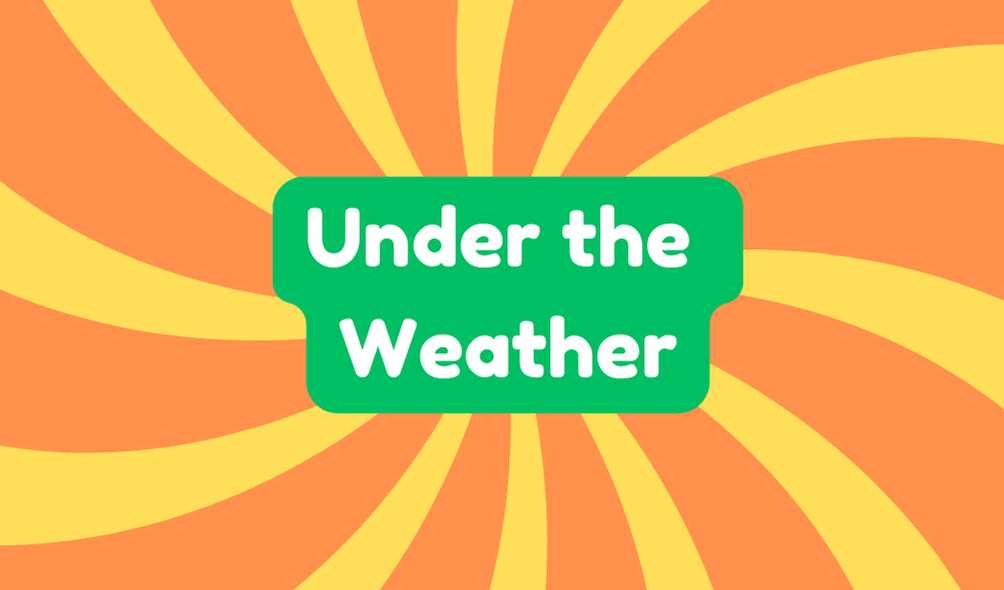The phrase "under the weather" refers to feeling unwell or in poor health. Its origins stem from maritime life, where sailors were sent below deck during storms for recovery, indicating vulnerability. Over time, it evolved into a common idiom reflecting discomfort in both physical and emotional contexts. Example sentences include those describing someone who feels tired or sick. This expression remains relevant today, highlighting the cultural shift in discussing health and wellbeing. Further exploration reveals more about its nuances.
Synonyms
When discussing the phrase "under the weather," one must consider a variety of synonyms that capture its meaning. While the term is widely recognized, exploring alternate phrases and related expressions can enhance communication.
- Feeling unwell
- Out of sorts
- Under the influence
- In poor health
These expressions convey subtle differences in context and clarity. However, one should be cautious, as overuse of synonyms may dilute the intended sentiment. Understanding these nuances can lead to more effective exchanges, empowering individuals to articulate their experiences with illness or malaise with greater precision, ultimately enriching their language skills in innovative ways.
Example of Sentences
Demonstrating how to use the phrase "under the weather" in context can clarify its meaning for those unfamiliar with idiomatic expressions. Here are a few examples that highlight its usage:
- "After a long week at work, he felt under the weather and decided to rest."
- "Despite feeling under the weather, she powered through the meeting."
- "The team was concerned when their star player showed signs of being under the weather."
- "He explained his absence as being under the weather, an idiom variation deeply rooted in cultural significance."
These sentences illustrate the expression's versatility and relevance in everyday conversation.
Origin
The origin of the phrase "under the weather" reveals intriguing connections to maritime life, particularly in how it pertains to sailors and their health. Rooted in maritime history, it originally described sailors who were sent below deck to recover from illness during storms. The term "under the weather bow" indicated the side of the ship most affected by turbulent weather, emphasizing sailors' vulnerability. This idiomatic expression captures a universal experience—feeling unwell—while reflecting the tactical challenges faced at sea. The evolution of its meaning offers a fascinating glimpse into how language adapts and thrives in changing contexts.
Collocations
Collocations with the phrase "under the weather" illustrate how language naturally intertwines with common experiences of illness and discomfort. These pairings reveal deeper meanings and connections to health issues and emotional states, often capturing the complexity of how one feels in various situations.
- Feeling under the weather
- Under the weather symptoms
- Under the weather and tired
- Under the weather for days
Examining these collocations highlights the relatability of the phrase. It identifies a spectrum of human experience, underscoring how both physical ailments and emotional stress can leave individuals feeling less than their best, an essential understanding in communication.
How to Use in Everyday Language
While many people use the phrase "under the weather" to describe feeling unwell, it is vital to understand the contexts in which it is appropriate. In everyday expressions, this idiom often surfaces in casual conversations, signaling slight discomfort or even fatigue as a reason for declining plans. While its frequent use lends familiarity, it's important to discern when oversaturation diminishes its meaning. Consequently, employing "under the weather" should strike a balance between authenticity and avoidance of cliché. Appreciating its nuance guarantees effective communication, elevating ordinary dialogue into a more meaningful exchange, rather than defaulting to worn-out phrases.
Why Is It Still Relevant Today?
Continuing from the exploration of the phrase's usage, "under the weather" retains its relevance today partly due to the universality of its meaning. In an era marked by heightened health awareness, this idiom transcends generations, reflecting cultural evolution in how society communicates illness. As wellness becomes a focal point of modern discourse, identifying oneself as "under the weather" encapsulates a relatable sentiment. However, this phrase also hints at the need for greater transparency regarding mental and physical health. By acknowledging shared experiences, individuals can foster empathy while navigating through a world increasingly focused on well-being in diverse contexts.







